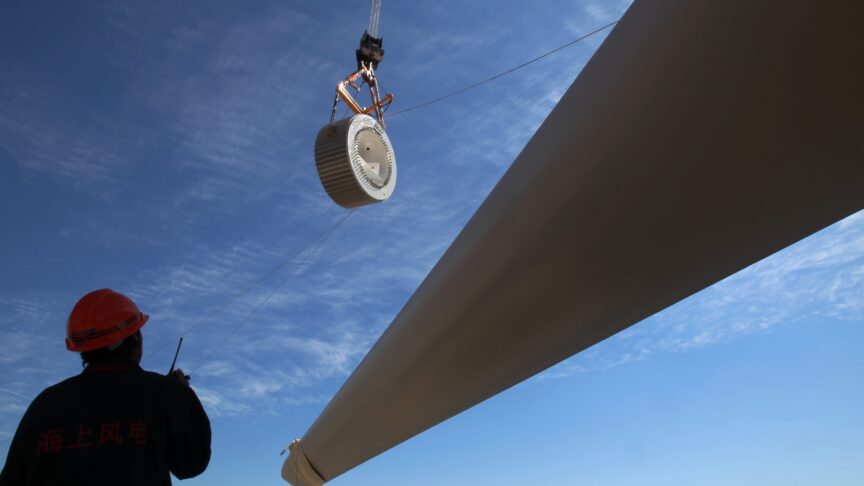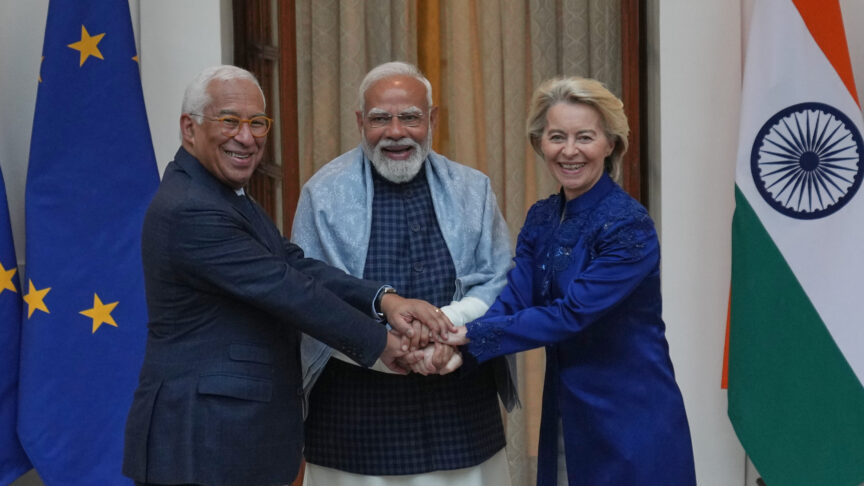The EU’s Indo-Pacific strategy: A chance for a clear message to China and Europe’s allies
Friends and foes alike will pay careful attention to the contents of the EU’s Indo-Pacific strategy. On the current reading, Europe’s friends in particular may be disappointed
On Monday, the Council of the European Union asked the European Commission and high representative to draw up an Indo-Pacific strategy by September this year. In doing so, the Council gave a clear indication of what the strategy’s main thrust should be.
Just a year ago, the Commission was still adamantly opposed to the idea of an EU Indo-Pacific strategy. The reasons for the move include pressure from member states such as France, Germany, and the Netherlands, which already published their own national Indo-Pacific strategies some months ago. More fundamentally, though, the EU had no choice but to acknowledge the challenge posed by the shifting geopolitical context.
The Indo-Pacific is home to half the world’s population, produces 40 per cent of global GDP, and includes some of the fastest-growing economies internationally. As such it could no longer be neglected. But economics alone did not justify the decision to create an Indo-Pacific strategy. Economics matter in the Indo-Pacific context as one of the foundations of a possible redefined regional and international order dominated by China. The prospect of an EU Indo-Pacific strategy is thus the outcome of the larger change in perception of China’s role in the international system. This has been brought about not only by China’s recent increased military assertiveness and political interference in Europe and elsewhere, but also Europe’s and others’ excessive dependency on China for critical goods and materials, as well as the ideological war that the covid-19 crisis exacerbated.
In addition, the signing last November of the Regional Comprehensive Economic Partnership – a free trade agreement between the ten ASEAN member states and five partners of the organisation (Australia, China, Japan, New Zealand, and South Korea) – only added to European fears around the emergence of an Asian economic bloc in which China inevitably plays a central role.
The Council’s report this week alludes to the China challenge by making reference to geopolitical competition, tensions over supply chains, the universality of human rights, compliance with international law, and reciprocity in trade and investment and connectivity. It states the need for the EU to leverage its economic weight through applying high standards in free-trade agreements in the entire Indo-Pacific region, which the Commission defines as extending from east Africa to the western Pacific. The Council communicated its intention to help strengthen regional organisations and more generally contribute to the resolution of global issues such as climate change and maritime security.
Interestingly, even though all these issues – including the choice of partners in Australia, India, and Japan – are linked directly or indirectly to China, the Council did not mention China once. True, the eventual strategy will implicitly be about peacefully rebalancing Europe’s relations with the country. But it ought also to be the EU’s ticket to a seat at the table at which the international order will be defined. On the basis of what we have seen this week, the EU risks failing to take up this seat.
A strategy is much more than a simple collection of objectives, no matter how legitimate and well meaning. It is first and foremost a political message, which should be understood by friends and foes alike, and in which the resolve matters as much as the content. From that perspective, what message will the Council’s words convey to China given that they do not even describe China as a “competitor, systemic rival and partner” in the way that the EU China strategy does?
Similarly, what is the message sent to the EU’s current and potential partners? According to the Council, the EU also intends to build on its existing relationships with India, Japan, and South Korea. Most of these countries welcome greater European engagement, and none of them is looking for a confrontation with China. But all of them consider that the time of ambivalence is past. Similarly, the United States, without whose cooperation an EU Indo-Pacific strategy will lose considerable traction, will expect Europe to stand up on every other issue, if not militarily then at least politically.
Because no EU member state, with the notable exception of France, is a resident power in the Indo-Pacific, the EU will have to make a particular effort to demonstrate that it means business. It needs to show it is ready to contribute to the overall objectives of the Indo-Pacific concept in more than words. The EU cannot expect to dilute China’s impact in the region merely through its presence. It needs to provide economic, political, and strategic alternatives to the series of individual face-offs between China and each of its interlocutors, in which the huge power asymmetry in favour of China allows Beijing to dictate the terms of the relationship. Similarly, regional allies will place particular scrutiny on what the EU says it will contribute to maritime security.
The EU Indo-Pacific strategy will be Europe’s ticket to a seat at the table at which the international order will be defined.
A robust strategy such as this would not preclude cooperation with China; and inclusivity is very much part of the process already proposed. Yet inclusivity should not lead to appeasement. True, the current approach may be nothing more than a desire to evade the China question by insisting on existing cooperation, but it brushes over the potentially problematic aspects of the relationship. A well drawn-up strategy could also assume conflicts of interest and differences in values with China but integrate cooperation with Beijing into it. It could leverage these differences to encourage China to join the field of internationally accepted standards and behaviours.
The Council’s steer this week reflects this fundamental ambivalence. It now falls to the Commission and the high representative to clarify the meaning of an EU Indo-Pacific strategy – and make sure it does not fall into irrelevance.
The European Council on Foreign Relations does not take collective positions. ECFR publications only represent the views of their individual authors.


